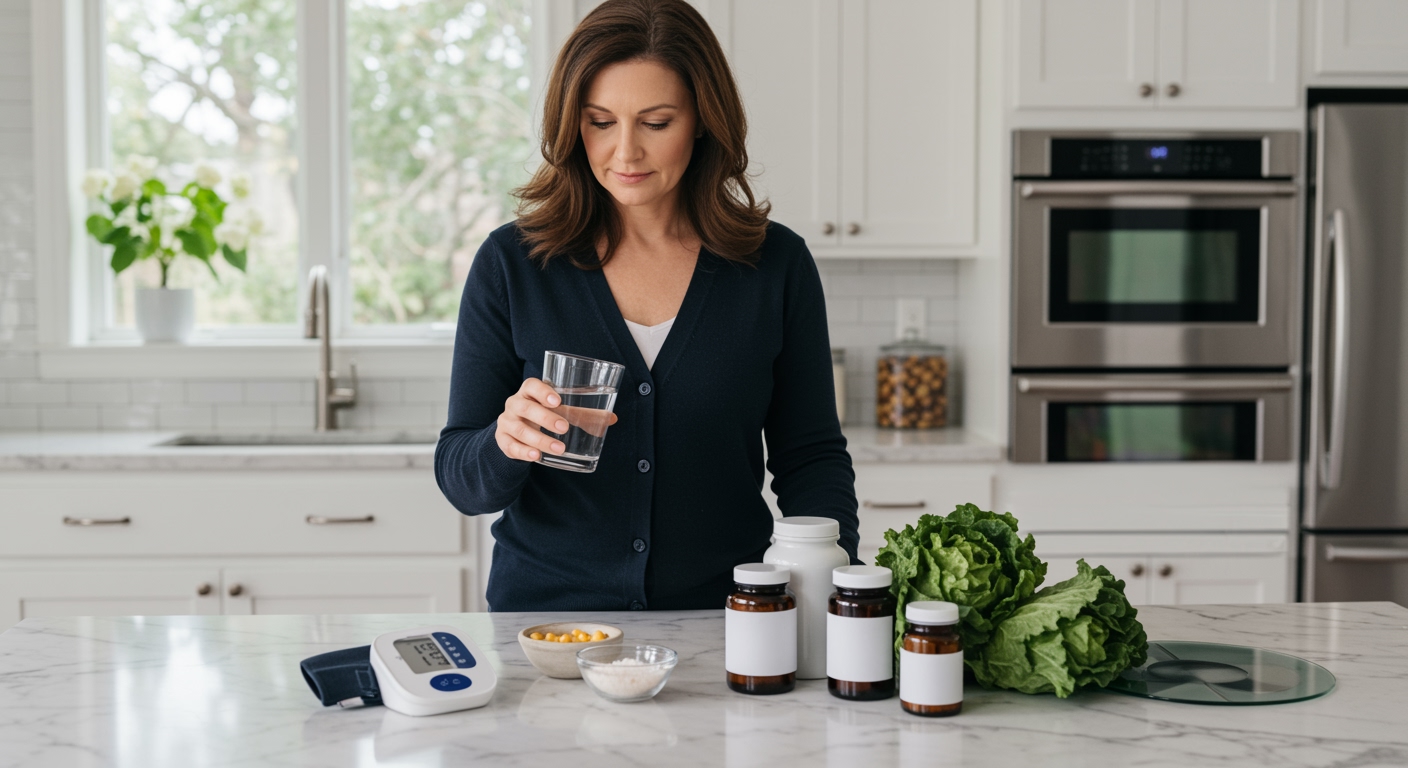✪ Key Takeaway: Hypotension patients should avoid most supplements but may benefit from vitamin B12, folate, and iron under medical supervision.
Introduction
Your blood pressure drops and you feel dizzy again.
You wonder if taking vitamin supplements might help raise your numbers and make you feel better throughout the day.
Hi, I am Abdur, your nutrition coach and today I am going to explain which vitamin supplements can help hypotension patients and which ones you should absolutely avoid.
What Causes Low Blood Pressure That Supplements Might Help?
Low blood pressure happens when your systolic reading drops below 90 mmHg or your diastolic reading falls under 60 mmHg.
Several nutritional deficiencies can contribute to hypotension by affecting your blood volume and vascular function.
Vitamin B12 deficiency reduces red blood cell production, leading to anemia and subsequently lower blood pressure.
Folate deficiency works similarly by impairing DNA synthesis in red blood cells, causing megaloblastic anemia that drops your blood pressure.
Iron deficiency creates the most common form of anemia, reducing oxygen-carrying capacity and forcing your heart to work with less circulating blood volume.
Dehydration and electrolyte imbalances also contribute to hypotension, but these require different approaches than vitamin supplementation.
✪ Fact: About 10-20% of hypotension cases stem from nutritional deficiencies that supplements can address.
Which Vitamins Actually Help Raise Blood Pressure?
Vitamin B12 stands as the most important supplement for hypotension patients with confirmed deficiency.
This vitamin helps your body produce healthy red blood cells that carry oxygen efficiently throughout your circulatory system.
When you have adequate B12 levels, your blood volume increases and your cardiovascular system functions more effectively.
Folate supplements work hand-in-hand with B12 to support red blood cell formation and prevent the type of anemia that causes low blood pressure.
Iron supplementation helps when your hypotension results from iron-deficiency anemia, but you need proper testing before starting iron pills.
Vitamin D may play a supporting role by helping regulate your renin-angiotensin system, which controls blood pressure, though research remains limited.
✪ Pro Tip: Always get blood tests to confirm deficiencies before starting any vitamin supplementation for hypotension.
What Supplements Should Hypotension Patients Avoid?
Many popular supplements can actually lower your blood pressure further and worsen your symptoms.
Magnesium supplements relax blood vessels and can drop your pressure dangerously low if you already have hypotension.
Potassium supplements work similarly by affecting your sodium-potassium balance and potentially reducing blood pressure even more.
Garlic supplements contain compounds that dilate blood vessels and lower blood pressure, making them unsuitable for hypotension patients.
Omega-3 fish oil supplements can have mild hypotensive effects, especially at higher doses above 3 grams daily.
Coenzyme Q10 supplements may lower blood pressure in some people, though the effect varies significantly between individuals.
✪ Note: Always read supplement labels carefully as many heart-healthy products are designed to lower blood pressure.
How Should You Take Supplements Safely With Hypotension?
Start by getting comprehensive blood work to identify specific nutritional deficiencies before taking any supplements.
Work with your healthcare provider to determine appropriate dosages based on your individual deficiency levels and overall health status.
Monitor your blood pressure regularly when starting new supplements to track how they affect your readings.
Begin with lower doses and gradually increase under medical supervision to avoid any adverse reactions or interactions.
Take B-complex vitamins with food to improve absorption and reduce the risk of stomach upset or nausea.
Space iron supplements away from calcium, coffee, and tea as these substances can interfere with iron absorption.
✪ Pro Tip: Keep a supplement and blood pressure log to track patterns and share with your healthcare team.
The Bottom Line
Hypotension patients should approach vitamin supplementation with caution and focus only on addressing confirmed nutritional deficiencies.
Smart supplementation targets the root cause rather than chasing quick fixes, and this principle applies especially to managing low blood pressure safely.
I would love to hear about your experience with supplements and hypotension management, so please share your questions or feedback in the comments below.
References
At NutritionCrown, we use quality and credible sources to ensure our content is accurate and trustworthy. Below are the sources referenced in creating this article:





